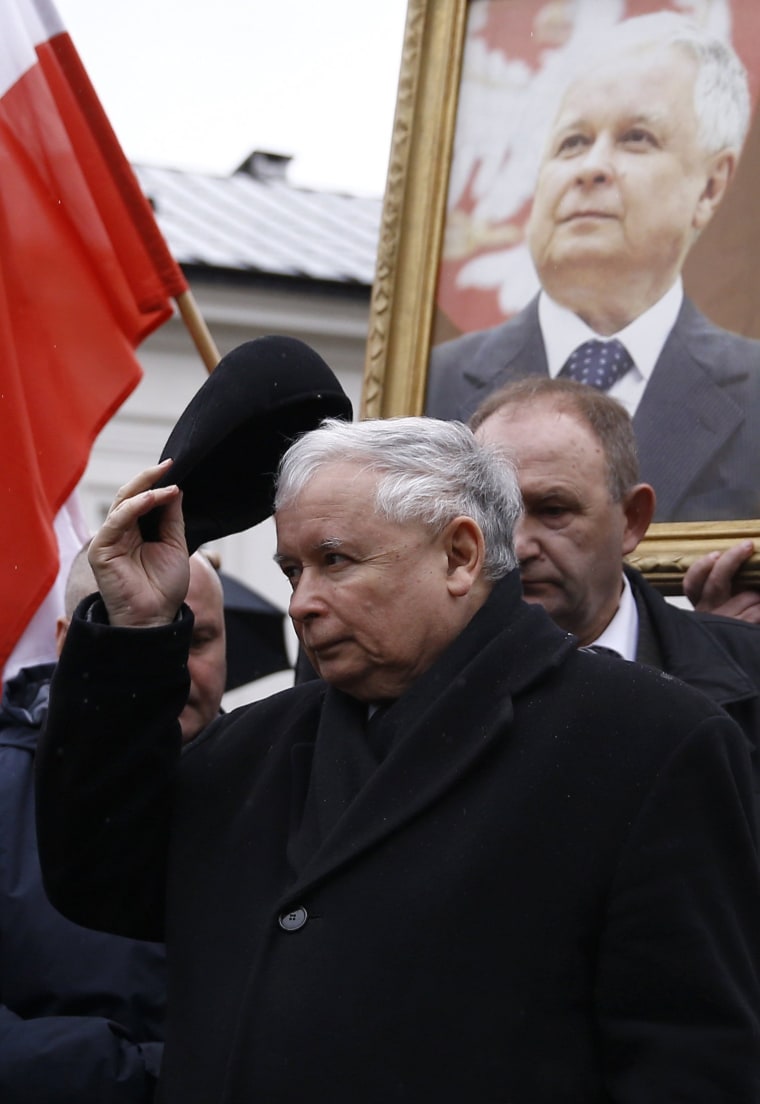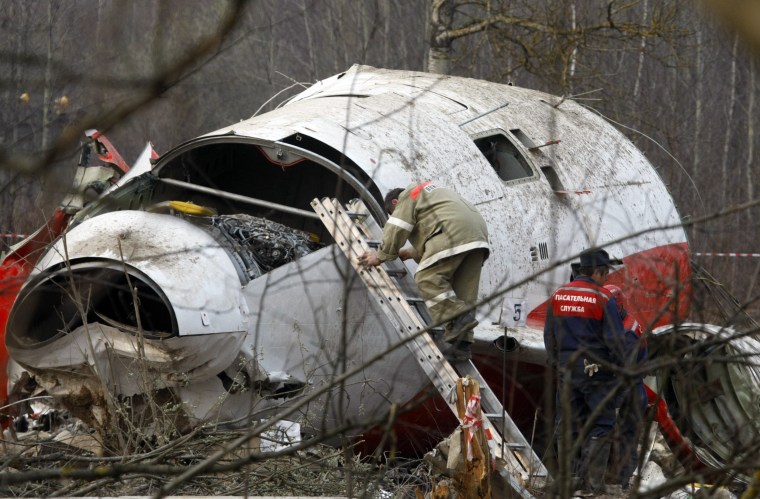WARSAW — Poland's defense minister appeared to suggest the death of president Lech Kaczynski in a 2010 plane crash in western Russia was the result of foul play, an allegation that is likely to test already troubled relations with Moscow.
Antoni Macierewicz did not spell out who he suspected, but the comments were made in a passage of his speech referring to a number of events blamed on Russia, including the violence in shared neighbor Ukraine.
They also come at a politically sensitive time, months before Poland is due to host a NATO summit where it will push for the alliance to station more troops on its eastern flank to counter the newly assertive Russia.
An inquiry into Kaczynski's death by the previous government blamed pilot error. But Poland's new government, led by Kaczynski's twin brother Jaroslaw, has said an onboard explosion could have caused the crash. Though his party never openly accused Moscow of orchestrating the president's death, it has said the Kremlin benefited from it.

"I don't want to rule on whether ... political enemies of the current Russian authorities, who accuse (them) of reaching the highest positions by using armed terror against their own population, are right - perhaps it's not true," Defense Minister Macierewicz said in a lecture given at a conference on warfare and terrorism on Saturday.
"But there is no doubt that the (Russian) attack on Georgia was one that was first preceded by internal sabotage, inside of Georgia. There's no doubt that what happened over Smolensk was aimed at depriving Poland of the leadership who led our nation towards independence."
The five-day Georgia-Russia war of 2008 saw Moscow strengthen its grip over largely pro-Russian South Ossetia, which had effectively been beyond Tbilisi's control since 1990. Russian troops pushed through South Ossetia deep into Georgia before withdrawing.
"After (the) Smolensk (plane crash), we can say that we were ... the first great victim of terrorism in the modern conflict, that's playing out right before our eyes," Macierewicz said.
Earlier this year, the conservative government of the Law and Justice (PiS) party relaunched an official inquiry into the crash.
The Russian foreign ministry declined to respond immediately to Macierewicz's comments. Commenting on Poland's decision to relaunch the probe at the time, Russian foreign ministry spokeswoman Maria Zakharova said: "I hope that this is not linked to politics. This hope is a faint one, but it still exists."
The plane crash, which killed 96 people, including the president, his wife, the central bank chief and top military brass, took place close to the site where Stalinist secret police forces shot some of the 22,000 Polish officers and intellectuals they executed in 1940.
Memories of Soviet domination still weigh on minds in former satellite states, of which Poland is one. Fears of falling back into Moscow's "sphere of influence" fueled the desire to join the EU and NATO after the Soviet Union collapsed in 1991.
